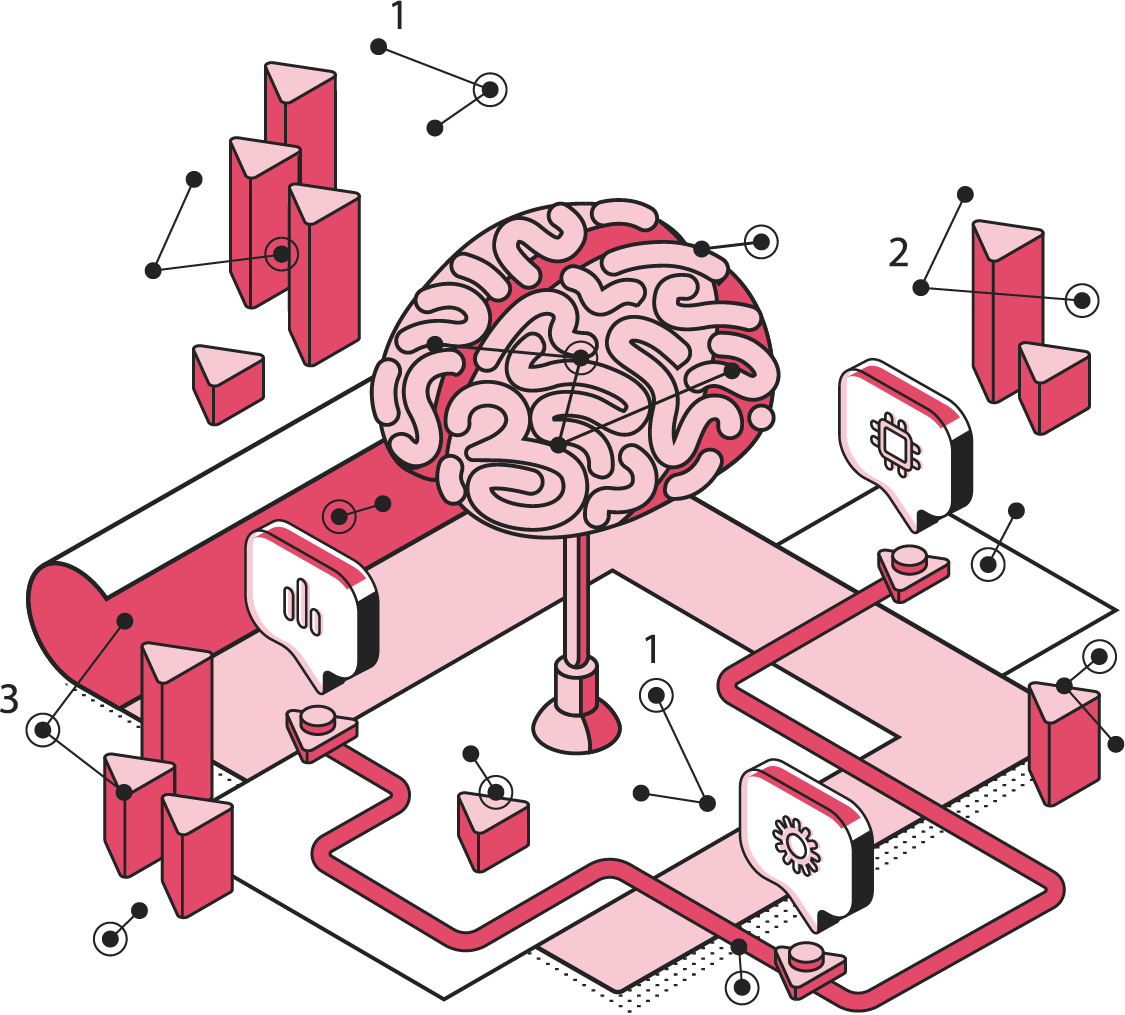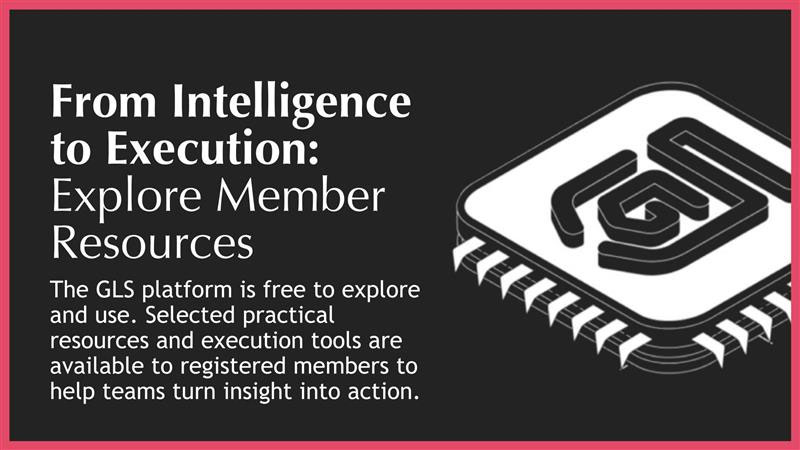The GLS Legal Operations Centre
Intelligence, resources and execution support
Transformation Tube Map
Knowledge Centre
Legal Dept.
Resources
Managed Legal Services
Members
Resources
Legal Ops
Community
Back
Workload Forecasting & Diagnostics
What Is It
Workload Forecasting & Diagnostics is the legal department’s radar system - a strategic capability that enables teams to anticipate future demand and understand the underlying causes of workload.
Workload Forecasting & Diagnostics is the combination of predictive modelling and analytical diagnosis that enables legal teams to:
◼️ Understand patterns and drivers of legal work
◼️ Decode why workload spikes occur
◼️ Align legal activity with business calendars, cycles and strategic priorities
◼️ Plan resourcing, budget and work intake with evidence rather than instinct
This discipline uses historical data, business events, matter trends and process insights to anticipate future demand — and then tests that forecast against the underlying causes of workload pressure.
It’s not just about predicting volume; it’s about decoding the patterns, triggers, and inefficiencies that drive legal activity.
Legal work rarely arrives randomly. It’s shaped by business cycles, product launches, regulatory changes, seasonal trends, and internal process failures.
By analysing historical data, business calendars, and matter trends, legal teams can forecast demand with increasing accuracy - and prepare accordingly.
Diagnostics go deeper. They reveal the “why” behind the work.
◼️ Is the team drowning in contract reviews because templates are poor?
◼️ Are compliance queries spiking due to unclear policies?
◼️ Are litigation volumes rising because of weak dispute resolution clauses?
◼️ This insight allows legal teams to fix root causes, not just manage symptoms.
Together, forecasting and diagnostics shift legal from reactive firefighting to proactive planning. They enable smarter staffing, better prioritisation, and more strategic engagement with the business.
Without this capability, legal teams will always be caught off guard - and transformation will remain out of reach.
It is for this reason that we have included the Workload Forecasting & Diagnostics as key station on the Legal Operations Line on the GLS Transformation Tube Map.
You can read more about the discipline and leadership implications here: Workload Forecasting & Diagnostics: The Discipline Behind High-Performance In-House Legal Teams
Scope
The scope of Workload Forecasting & Diagnostics typically includes:
The scope of Workload Forecasting & Diagnostics typically includes:
◾️Historical Workload Analysis: Reviewing past matter volumes, types, timing, and cycle-time to identify patterns and volatility.
◾️Business Calendar Integration: Aligning legal planning with known business events (e.g., product launches, procurement cycles, audits, board cadence).
◾️Demand Driver Identification: Pinpointing the internal and external triggers that generate legal work (including repeat demand from preventable causes).
◾️Root Cause Diagnostics: Analysing inefficiencies, policy gaps, and process failures that inflate workload.
◾️Forecast Modelling: Projecting future demand across service categories, with assumptions stated and tested (not guessed).
◾️Resource Planning Alignment: Translating forecast insights into staffing, outsourcing, and budgeting decisions.
◾️Stakeholder Engagement: Sharing forecast implications with business units to align expectations and service trade-offs.
◾️Continuous Refinement: Updating models and diagnostics based on new data, operational changes, and accuracy review.
Resource Status
The Workload Forecasting & Diagnostics station is considered a Specialist resource within the GLS Legal Operations model.
A Foundational Resource: Is responsible for determining the overall performance capabilities of a “critical” legal function. If it is not optimised, the function can never be optimised.
A Repeater Resource: Supports the performance of multiple "critical" legal functions and as such represents a "ripple effect" productivity intervention point.
A Specialist Resource: Is responsible for driving the performance of a very specific part of an individual legal function. Its productivity contribution is limited to that single legal function.
Best Practice Features
The best practice features of Workload Forecasting & Diagnostics are as follows:
◼️ Data-Driven Forecasting: Using consistent intake and matter data combined with business signals to model future demand.
◼️ Integrated Business Planning: Aligning legal workload forecasts with commercial calendars, strategic initiatives, and risk cycles.
◼️ Root Cause Analysis Capability: Distinguishing between unavoidable legal demand and demand generated by preventable failure.
◼️ Visualisation Tools: Dashboards and heatmaps that clearly show volume, volatility, bottlenecks, and cycle-time.
◼️ Scenario Planning: Modelling demand shocks such as regulatory change, M&A activity, or product launches.
◼️ Stakeholder Communication: Translating forecasts into service expectations and prioritisation decisions the business can act on.
◼️ Feedback Loops: Reviewing forecast accuracy, learning from variance, and tightening assumptions over time.
◼️ Budget and Resourcing Linkage: Ensuring forecasting outputs directly inform spend control and capacity planning.
Business Value
When Workload Forecasting & Diagnostics is implemented as a discipline — not a reporting exercise — the business experiences a material shift in how legal performs, how it costs, and how it is relied upon.
◼️ Legal Delivers More: Anticipating demand and stripping out avoidable work releases latent capacity across the team. Output increases without proportional increases in headcount or burnout.
◼️ Legal Costs Less: Diagnostics exposes repeat work, preventable queries, misrouted requests, unnecessary escalation, and poor sequencing. Removing this work reduces internal drag and external counsel reliance.
◼️ Legal Becomes a Better Business Partner: Forecasting enables legal to engage earlier, align with business plans, and shape outcomes rather than react to them. Legal moves upstream in the decision-making process.
◼️ Legal Costs Become Predictable: The business gains forward visibility of demand, pressure points, and trade-offs. Budget discussions shift from surprise and justification to planning and choice.
◼️ Legal Spend Delivers ROI: Investment in legal capability is tied to measurable outcomes — faster execution, lower risk exposure, reduced external spend, and improved decision quality. Legal is no longer framed as a cost centre but as a return-generating function.
◼️ Faster Commercial Execution: Predictable legal capacity stabilises cycle times and removes legal as a bottleneck in revenue-generating activity.
◼️ Improved Risk Timing: Forecasting surfaces legal risk earlier in the business lifecycle, enabling mitigation before risk crystallises or becomes expensive to unwind.
◼️ Better Executive Decision-Making: Leaders receive clear, evidence-based insight into legal demand and constraints, improving prioritisation and trade-offs at executive level.
◼️ Stronger Cross-Functional Alignment: Legal planning aligns more tightly with Finance, Compliance, Procurement, and Operations, reducing friction and rework.
◼️ Higher Confidence in Change Investment: Transformation initiatives are anchored to real demand drivers, materially improving ROI and reducing the risk of failed or abandoned programmes.
This is the point at which legal stops absorbing cost unpredictably — and starts delivering controlled, compounding value.
Legal Department Value
For the legal department, Workload Forecasting & Diagnostics is not a reporting exercise — it is a control mechanism.
◼️ Control Over Workload Reality: Legal finally knows what work is coming, why it is coming, and what is driving pressure — replacing anecdote, emotion, and guesswork with evidence.
◼️ Permission to Prioritise Properly: Forecasting gives legal the factual basis to say no, defer work, or renegotiate timelines without damaging credibility or relationships.
◼️ Protection of Senior Legal Time: Diagnostics exposes how much senior capacity is being consumed by work that does not require senior judgment, allowing deliberate reallocation to risk-critical matters.
◼️ Reduced Firefighting: Predictability removes the constant crisis cycle that drains energy, morale, and judgment — improving both quality of advice and team sustainability.
◼️ Stronger Internal Mandate for Change: Evidence of demand drivers and inefficiency creates internal alignment for process, intake, resourcing, and technology change that would otherwise stall.
◼️ Better Resourcing Decisions: Headcount, role design, and use of external counsel are based on actual demand patterns, not political negotiation or historical precedent.
◼️ Higher Credibility With Finance and the Business: Legal conversations move from defensive explanation to proactive planning, materially improving influence at the executive table.
◼️ Lower Burnout and Attrition Risk: Stability and predictability address the real drivers of in-house burnout — unmanaged volume, volatility, and last-minute escalation.
◼️ Transformation That Actually Sticks: Initiatives are sequenced against real constraints, dramatically improving adoption and ROI.
This is the moment legal stops being busy and brittle — and starts being deliberate, resilient, and in control.
Who Needs It
The Workload Forecasting & Diagnostics station is essential for:
◼️Legal departments of all sizes
◼️Legal operations teams
◼️General Counsel and Heads of Legal
◼️Legal tech and innovation leads
◼️Compliance and risk management teams
Productivity Consequences
When Workload Forecasting & Diagnostics is absent or superficial, productivity does not slowly erode — it fails structurally.
◼️ Permanent Senior Lawyer Drag: High-value legal capability is consumed by volume work, avoidable rework, and reactive escalation because no one has diagnosed where demand is actually coming from.
◼️ Chronic Interruption Load: Without demand visibility, ad-hoc requests, follow-ups, and informal escalations fragment attention and elongate cycle times across the entire team.
◼️ Illusion of Being “Fully Utilised”: Teams appear busy but are not productive — time is absorbed by noise, switching costs, and preventable work rather than risk-critical output.
◼️ Escalation as a Default Workflow: Issues are pushed upward prematurely because intake, prioritisation, and sequencing are unmanaged, creating artificial pressure at the top of the team.
◼️ Compounding Bottlenecks: Pressure points repeat predictably, yet remain unresolved because the root causes are never surfaced or owned.
◼️ External Spend as a Pressure Valve: Law firms are used to absorb unmanaged demand rather than supplement a controlled operating model, inflating cost without increasing throughput.
◼️ Failed Transformation Initiatives: Process, technology, and resourcing changes are launched without a demand baseline, resulting in low adoption, weak ROI, and quiet abandonment.
◼️ Attrition Masquerading as a People Problem: Burnout and turnover are blamed on individuals when the real cause is unmanaged volume, volatility, and lack of predictability.
◼️ Loss of Strategic Capacity: Over time, legal loses the ability to do its highest-value work because it is permanently consumed by urgent but low-impact activity.
Over time, legal loses strategic capacity not because it lacks talent — but because it never owned its workload intelligence.
Tech Implication
This station is technology-leveraged, but it is not technology-led.
Workload Forecasting & Diagnostics is an auditing and examination discipline. The purpose of technology here is to provide visibility into existing workload — not to optimise or automate it.
The technology requirements are intentionally modest.
◼️ Matter Management Systems: Existing MLMS or tracking tools are used to extract historical workload data — volume, type, timing, duration, and allocation. Imperfect data is acceptable; inaccessible data is not.
◼️ Basic Analytics Capability: Simple analytical tools are used to interrogate patterns, trends, and variability. The goal is insight, not sophistication.
◼️ Work Instructions and Intake Artefacts: Reviewing request forms, emails, escalation paths, and informal intake channels is critical to understanding how work enters the system.
◼️ Business Calendar Inputs: Commercial, operational, and regulatory calendars provide essential context for interpreting demand spikes.
◼️ Reporting and Visualisation Tools: Clear, simple visual outputs make workload patterns intelligible to legal leaders and the business.
At this stage, the focus is access, clarity, and interpretability — not system uplift.
AI and advanced analytics — including GLS’s tools — are applied to accelerate analysis, surface patterns, and test assumptions, not to prescribe solutions. Optimisation and automation are addressed only after workload reality is understood.
That sequencing is deliberate — and non-negotiable.
What Next?
Visit each Station on this Line for in-depth analysis of what it takes to make this in-house function really perform. Or you can go back to the overall GLS Legal Transformation Tube Map.
In most cases, the GLS Legal Operations Centre contains everything you need to effectively optimise this key function yourself – or feel free to reach out to us – and we can help you.

The GLS Legal Operations Centre
Register to access your complimentary Day 1 Resource Stack packed with legal team performance resources.

GLS Ultimate Guide To Legal Operations
Download this and read it thoroughly and regularly. It is a wonderful transformation companion.

Book A No-Obligation Consultation
If you would like discuss your legal transformation needs, please book a 30 minute free consultation with us.

GLS Legal Transformation Boot Camp
Visit the GLS Connect Zone and select the intelligence feed that you would like to receive from us.




